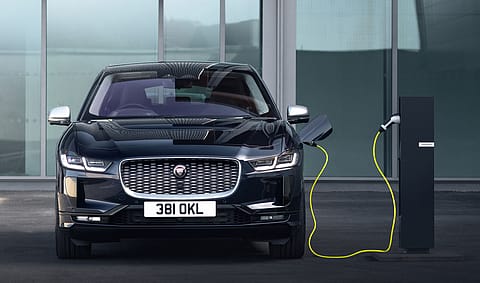Global electric car sales double to 6.6 million in 2021; India lags
Around 16 million electric cars are on the road worldwide, consuming 30 TWh of electricity per year, equivalent to all the electricity generated in Ireland.

In 2012, about 130,000 electric cars were sold worldwide. Today, that many are sold in the space of a single week. Electric car sales in 2021 have more than doubled year-on-year to 6.6 million, representing close to 9% of the global car market. In contrast to this, in large developing economies such as Brazil, India and Indonesia, the share is still below 1% without any significant increase over the past year, estimates the International Energy Agency (IEA).
In 2019, 2.2 million electric cars were sold globally representing just 2.5% of global car sales. In 2020, the overall car market contracted but electric car sales bucked the trend, rising to 3 million and representing 4.1% of total car sales. In 2021, electric car sales more than tripled from two years earlier. Now around 16 million electric cars are on the road worldwide, consuming roughly 30 terawatt-hours (TWh) of electricity per year, which is equivalent to all the electricity generated in Ireland, estimates IEA.
The big boom in electric car sales globally is mainly due to China, where sales tripled in 2021 to 3.4 million — more than all the electric cars sold across the world in 2020. Electric cars’ share of the overall market on a monthly basis leaped from 7.2% in January to around 20% in December. The Chinese government’s official target is for electric cars to reach a market share of 20% for the full year in 2025. The Chinese government had extended electric car subsidies for a further two years after the pandemic broke out, albeit with a planned reduction of 10% in 2021, and 30% in 2022.
In Europe, electric car sales increased by nearly 70% in 2021 to 2.3 million, despite total car sales being 25% lower than in 2019. Electric cars accounted for 17% of total European sales last year. The love for electric cars in Europe was triggered by new carbon dioxide emission standards, increased purchase subsidies for EVs and expansion to most major European markets. Overall, electric cars accounted for 17% of total European sales in 2021, but there were significant differences across markets. Norway at 72%, and Sweden and the Netherlands at 45% and 30% respectively, sat atop global rankings. At 25%, Germany had by far the highest market share among large European markets, followed by the United Kingdom and France (both around 15%), Italy (8.8%) and Spain (6.5%), said IEA.
Sales of electric cars in the United States more than doubled to surpass half a million. The overall U.S. car market recovered as well, but electric cars doubled their share to 4.5%. The U.S. electric car market is still mostly dominated by Tesla, which accounts for more than half of all electric units sold. Tesla’s market share has declined from 65% in 2020 as new electric models were offered by other automakers.
In Japan, electric car sales also barely increased, with their market share remaining below 1% over the past three years. In Korea, electric car sales more than doubled in 2021 after two years without growth, increasing their market share to 8%. Electric car sales in Australia also more than tripled in 2021, albeit from a low baseline, bringing their market share above 2%, say Leonardo Paoli, clean energy technologies analyst, and Timur Gül, head of the energy technology policy division, in the IEA report.
Commenting on India, Brazil and Indonesia, they say while sales of electric scooters and buses are expanding in these countries, the price premium attached to electric cars and a lack of charging infrastructure are key reasons for the sluggish uptake.
Recommended Stories
IEA estimates EV sales are going to increase as various automakers and governments are moving to EVs. The U.S. government announced in November 2021 an ambitious 50% electrification target for new cars by 2030, supported by an announcement to install 500,000 charging points. In Europe, the E.U. Commission proposed to bring the carbon dioxide emission standard for new cars to zero by 2035. Volkswagen plans half of its sales would be electric by 2030. Ford expects 40-50% of its sales to be electric by the end of the decade. Toyota, the largest car manufacturer in the world, targets electric car sales of 3.5 million a year by 2030.
World's top five electric car sellers in 2021 were Tesla (936,000 units), VW Group (763,000), Chinese company BYD (598,000), GM (517,000) and Stellantis (385,000).